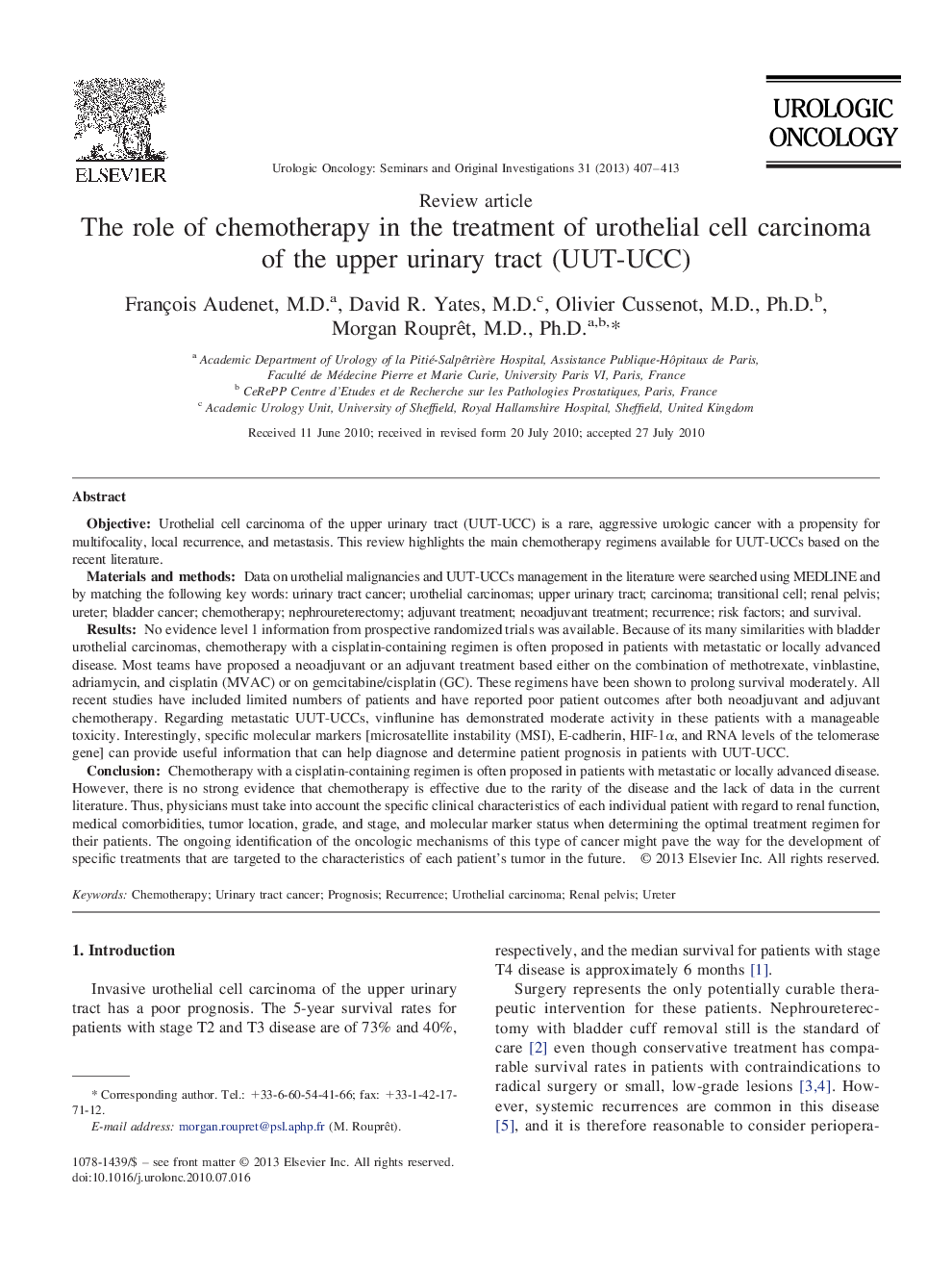| کد مقاله | کد نشریه | سال انتشار | مقاله انگلیسی | نسخه تمام متن |
|---|---|---|---|---|
| 4000097 | 1259366 | 2013 | 7 صفحه PDF | دانلود رایگان |

ObjectiveUrothelial cell carcinoma of the upper urinary tract (UUT-UCC) is a rare, aggressive urologic cancer with a propensity for multifocality, local recurrence, and metastasis. This review highlights the main chemotherapy regimens available for UUT-UCCs based on the recent literature.Materials and methodsData on urothelial malignancies and UUT-UCCs management in the literature were searched using MEDLINE and by matching the following key words: urinary tract cancer; urothelial carcinomas; upper urinary tract; carcinoma; transitional cell; renal pelvis; ureter; bladder cancer; chemotherapy; nephroureterectomy; adjuvant treatment; neoadjuvant treatment; recurrence; risk factors; and survival.ResultsNo evidence level 1 information from prospective randomized trials was available. Because of its many similarities with bladder urothelial carcinomas, chemotherapy with a cisplatin-containing regimen is often proposed in patients with metastatic or locally advanced disease. Most teams have proposed a neoadjuvant or an adjuvant treatment based either on the combination of methotrexate, vinblastine, adriamycin, and cisplatin (MVAC) or on gemcitabine/cisplatin (GC). These regimens have been shown to prolong survival moderately. All recent studies have included limited numbers of patients and have reported poor patient outcomes after both neoadjuvant and adjuvant chemotherapy. Regarding metastatic UUT-UCCs, vinflunine has demonstrated moderate activity in these patients with a manageable toxicity. Interestingly, specific molecular markers [microsatellite instability (MSI), E-cadherin, HIF-1α, and RNA levels of the telomerase gene] can provide useful information that can help diagnose and determine patient prognosis in patients with UUT-UCC.ConclusionChemotherapy with a cisplatin-containing regimen is often proposed in patients with metastatic or locally advanced disease. However, there is no strong evidence that chemotherapy is effective due to the rarity of the disease and the lack of data in the current literature. Thus, physicians must take into account the specific clinical characteristics of each individual patient with regard to renal function, medical comorbidities, tumor location, grade, and stage, and molecular marker status when determining the optimal treatment regimen for their patients. The ongoing identification of the oncologic mechanisms of this type of cancer might pave the way for the development of specific treatments that are targeted to the characteristics of each patient's tumor in the future.
Journal: Urologic Oncology: Seminars and Original Investigations - Volume 31, Issue 4, May 2013, Pages 407–413